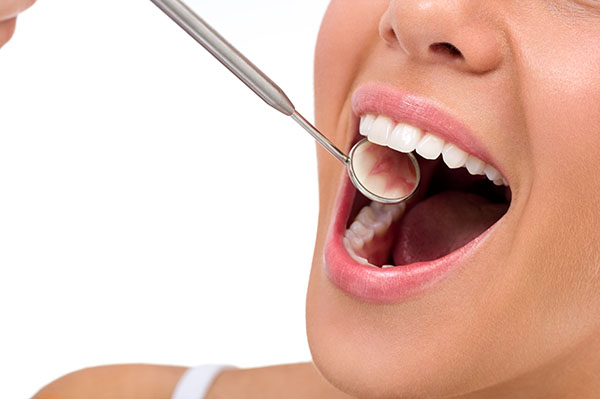 Patients who notice their gums bleeding upon brushing, flossing, or even eating may initially panic. However, while bleeding gums often signify the beginnings of gingivitis, this inflammation and the resulting gum disease can be reversed with timely and targeted treatments if it is caught soon enough. It is important to investigate the cause of long-term or severe bleeding with a dental professional before it turns into a more concerning problem.
Patients who notice their gums bleeding upon brushing, flossing, or even eating may initially panic. However, while bleeding gums often signify the beginnings of gingivitis, this inflammation and the resulting gum disease can be reversed with timely and targeted treatments if it is caught soon enough. It is important to investigate the cause of long-term or severe bleeding with a dental professional before it turns into a more concerning problem.
What is gingivitis?
Gingivitis, or inflammation of the gums, often begins with insidious signs. Patients may not notice the early signs of gum disease as it can begin with small areas of inflammation in areas that the patient cannot readily observe. When bacteria are allowed to proliferate in the mouth, often as a result of poor dental hygiene, a film of plaque builds up on the patient's teeth. Patients can prevent gingivitis or treat early inflammation with good oral hygiene habits like twice-daily brushing, flossing, and using an antiseptic mouthwash. These patients may need to visit the dentist more often for routine teeth cleanings.
Patients often want to know how severe the bleeding gums are and whether the problem will go away. Usually, gingivitis is temporary, but if it is not treated in time, it can cause severe damage to the patient's mouth. Complications from untreated gum disease include infection, progression to a more severe form of gum disease called periodontitis, and even loss of teeth or bone loss in the jaw.
How can gingivitis be reversed?
Despite the scary-sounding long-term effects of gingivitis, when the bleeding is caught early enough, it can be halted and even reversed. Patients should receive a full dental checkup to ensure that good dental habits are implemented. The dentist may ask questions to check whether the patient's diet is providing adequate nutrition; in some cases, the lack of enough nutrients such as vitamin C can cause gum issues.
The dentist may provide special toothpastes, mouthwashes, or rinses to reverse the inflammation causing the bleeding gums and keep the teeth free of plaque. Patients are often advised to visit for more frequent dental checkups to ensure that the gingivitis does not progress into a more serious form of gum disease. Patients who plan to receive further dental work such as braces, implants, and fillings should check with a dental professional to determine if the teeth and gums are healthy enough to proceed. Undergoing this type of work too soon, especially if it is not medically necessary, can lead to further pain and possibly infection.
Conclusion
Patients who are concerned about the state of bleeding gums, teeth, or other facets of oral health should see a dentist as soon as possible for a thorough assessment. Keeping up with twice-yearly checkups can help maintain oral health, but for patients with gum disease, more frequent checkups may be necessary to ensure that the disease is being adequately treated. With the right treatment, early gum disease can be reversed and great oral health can be maintained throughout the patient's life.
Request an appointment or call Paramount Dental Care & Specialty at 562-450-1261 for an appointment in our Long Beach office.
Related Posts
Gum disease is a common yet serious oral health issue that can cause discomfort, damage, and even tooth loss if left untreated. With the right gum disease treatment, patients can not only stop the infection in its tracks but also restore the patient's overall oral health. Knowing the true impact of gum disease and how…
There are many reasons why bleeding gums may occur. If it only happens once in a while, it is typically not cause for concern. Gums can bleed because of brushing or flossing that is overly vigorous. If bleeding is an ongoing occurrence, however, there may be an underlying medical or dental condition causing it. The…
Although the gums may bleed occasionally from rough brushing or flossing too vigorously, frequent bleeding gums are a sign that something is wrong. Dental issues are the most common cause of this bleeding, often due to proper oral hygiene not being practiced. Depending on the cause of the bleeding, there are certain treatments and preventative…
